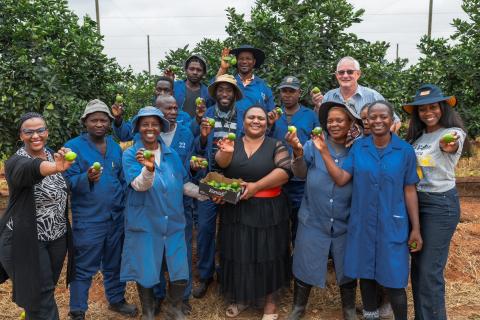
It is understood that when constructing a house, the builder should focus on the foundation as the house will not stand if it is not properly set.
This analogy fits aptly into recent discussions concerning pricing strategies directed at the reduction of alcohol harm, namely excise taxes and more recently Minimum-Unit Pricing (MUP), where the former forms the base of the policy norm, and the latter, yet to gain momentum as a global best practice.
In the wake of the latest call for comment by the Western Cape Government to provide written submissions on the possible introduction of a MUP strategy in that province, the South African Breweries would like to reiterate our long-standing position, which is to address the heart of the issue rather than its symptoms. Creating a retail price floor, even if it is intended to be complimentary to excise taxes may create further market distortions on top of what already exists if the impact of MUP is not fully understood.
SAB has over the last two years has made submissions to government to prioritise addressing the foundational, systemic issues within the excise system described in the 2014 Excise Policy.
Our core argument is that all alcohol beverages should be taxed on an alcohol content-based excise system in order for the tax policy to be harmonised.
In the current disposition, lower alcohol beverages such as beer are paying 30% more excise taxes relative to some high alcohol beverages, creating its own market distortionary effect through price. The wrong price signals are being sent to heavy drinkers for instance, who can easily trade down to cheaply priced, higher alcohol beverages, without any disincentives towards this behavior being created by the excise tax system. Since there are already existing policy gaps that require change, due diligence would be to seek to improve the excise system approach rather than to add an additional layer of pricing strategy through the introduction of MUP.
The WHO has proposed that “An updated list of the most effective and complementary policy options recommends increasing excise taxes on alcoholic beverages as one of the most cost-effective interventions governments can use” .Furthermore, the Update Report on the Evidence and Recommended Policy Actions by the WHO further states that: “stronger alcohol products should be taxed at a higher rate than lower-strength alcohol products. From the perspective of public health, there is little justification for any approach other than specific taxation, through which the tax payable on a product is directly proportional to its alcoholic content.” As a starting point then, all efforts should be directed to improving the excise system and ensuring that it is closely aligned with public health research.
To a large extent then, the conversation about the feasibility of an MUP approach is about the strength of the initial evidence - has enough research been done to ensure a deep appreciation for the historical political economy of the Western Cape, both in the context of alcohol harm and illicit alcohol? (Even for excise tax policy discussions, while more mature and developed, still must constantly question and refine itself in light of a better understanding on how to carefully manage pricing strategies used to deal with alcohol harm). The evidence that has been put forward to qualify an MUP position is full of gaps and holes, prioritising the advocacy of the position and not the rigor of the desktop research itself. More work therefore still needs to be done to understand whether the MUP approach has been duly quantified, without creating deleterious market scenarios that destabilise the legal, taxed alcohol market in South Africa.
The reduction of alcohol harm should be prioritised and even nuanced for the respective provinces as it remains a national priority. At SAB, the responsible consumption of beer is central to protecting our license to trade, and as a result, a key area in which we seek to directly work to impact in a constructive and meaningful way. But when it comes to pricing strategies to deal with alcohol harm, all energy should be directed at improving the excise system.
The resounding call for the introduction of a MUP approach in the Western Cape should really be the expedited call for the South African Excise Policy to be reviewed. A fundamental pivot needs to take place in the direction of improving the foundation of the house before the introduction of complementary walls to support it. The excise system that already exists, with its current deep cracks needs some key structural improvements and as indicated, this should be done by placing all alcohol beverages on an alcohol content-based excise system.
Fatsani Banda is Senior Manager: Excise Tax and Public Policy at the South African Breweries.



